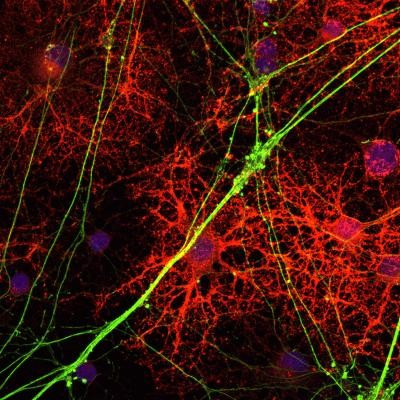Parkinson's Drug Shows Promise as Multiple Sclerosis Treatment

A drug for Parkinson's disease has been found to be an effective treatment for multiple sclerosis (MS) in mice.
Benztropine has been found to be highly effective in treating a standard model of MS in mice, both as a stand-alone treatment and in combination with existing MS drugs.
Unlike standard MS drugs, which supress the immune system, the newly identified set of compounds boost progenitor cells that can then repair nerve fibres damaged by the disease.
MS is an autoimmune disease of the brain and spinal cord that currently affects over two million people worldwide. Its cause is unknown but a lack of vitamin D and certain infections are known to increase risk.
Symptoms include limb weakness, numbness, fatigue, vision problems, slurred speech, memory problems and depression. The average life expectancy of someone living with MS is around 10 years less than the average population.
Immune cells infiltrate the spinal cord and brain causing inflammation and the loss of an insulating coating called myelin on nerve fibres. As these nerve fibres lose their coating, they lose the ability to transmit signals efficiently and degenerate.
Scientists from the Scripps Research Institute identified the compounds while trying to restore progenitor cells damaged by MS. These cells, called oligodendrocytes, normally repair myelin sheaths of nerve fibres but they decline sharply in MS sufferers and do not mature to offer their protective benefits.
Compliment existing treatments
They screened 100,000 diverse compounds to find any that could induce these cells to mature. Several compounds were found to be effective but only benztropine had already been approved by the Food and Drugs Administration.
Vishal A Deshmukh, first author of the paper, said: "That was a surprise, and it meant that we could move forward relatively quickly in testing it."
In tests on mice with an MS-like disease, benztropine showed a "powerful ability" to prevent autoimmune disease and virtually eliminated the disease's ability to relapse. They also found the drug had a "remarkable" ability to complement existing MS treatments.
Researchers found benztropine boosted the population of mature oligodendrocytes that restore the damaged nerves, even while the disease attacks.
Luke L Lawson, senior author of the study, said: "The benztropine-treated mice showed no change in the usual signs of inflammation, yet their myelin was mostly intact, suggesting that it was probably being repaired as rapidly as it was being destroyed.
"We're excited about these results, and are now considering how to design an initial clinical trial."
He also warned, however, that MS sufferers should not use the Parkinson's drug before it has been fully tested.
© Copyright IBTimes 2025. All rights reserved.






















